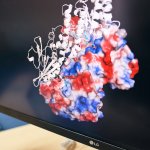
The University of Manchester spinout, Apini, have developed a new series of small molecule compounds, specifically designed to inhibit the pro-inflammatory activity of eNAMPT
One of the key compounds in a number of cellular processes is Nicotinamide Adenine Dinucleotide (NAD), with Intracellular NAMPT (iNAMPT) playing a key role in maintaining the levels of NAD. NAMPT inhibitors have been known for some time, and many researchers have attempted to use these limiters to inhibit the growth of tumours. However, the high toxicity of these inhibitors has limited their clinical use to cancer applications, despite the fact they could be used in a number of other treatments.

The writing’s on the wall
Extracellular NAMPT (eNAMPT/PBEF/visfatin) have been implicated in the pathophysiology of a range of chronic inflammatory diseases, such as diabetes, cardiovascular disease, Alzheimer’s disease, and osteo and rheumatoid arthritis, where there is an emerging relationship between eNAMPT levels and disease state in both preclinical models and patients.
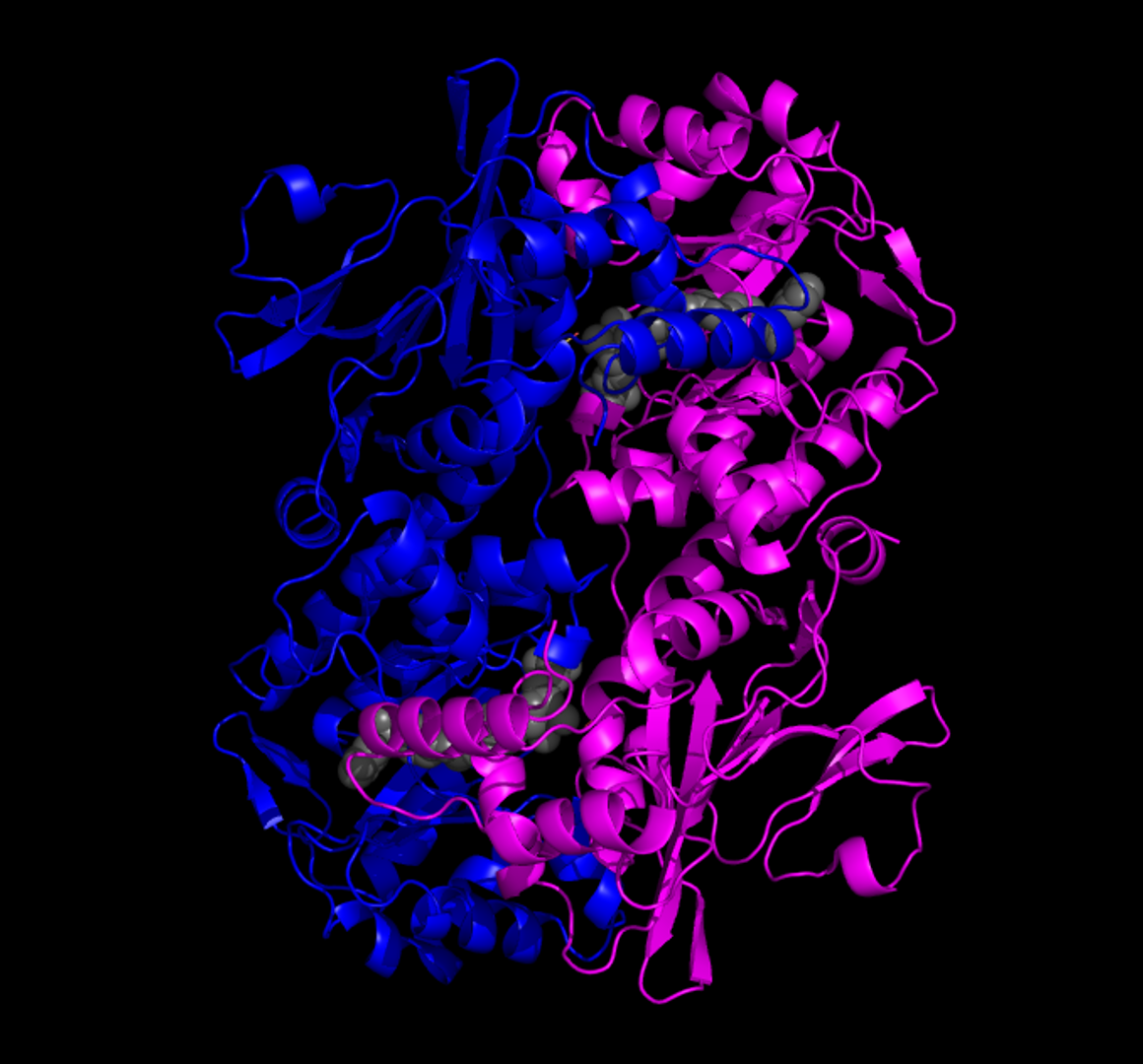
eNAMPT modulator
The University of Manchester have developed a new series of small molecule compounds, specifically designed to stimulate eNAMPT dimerisation and have demonstrated these have potent activity leading to a corrective effect in in vitro and in vivo phenotypic models of diabetes.
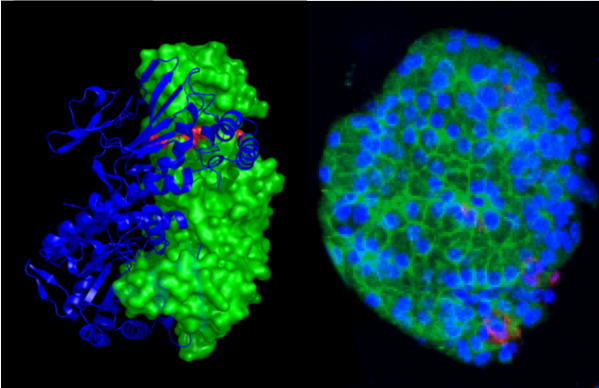
A crystal structure of the NAMPT protein bound to one of their compounds (left) alongside an image of an islet showing improvement in beta cell number following compound treatment (right)
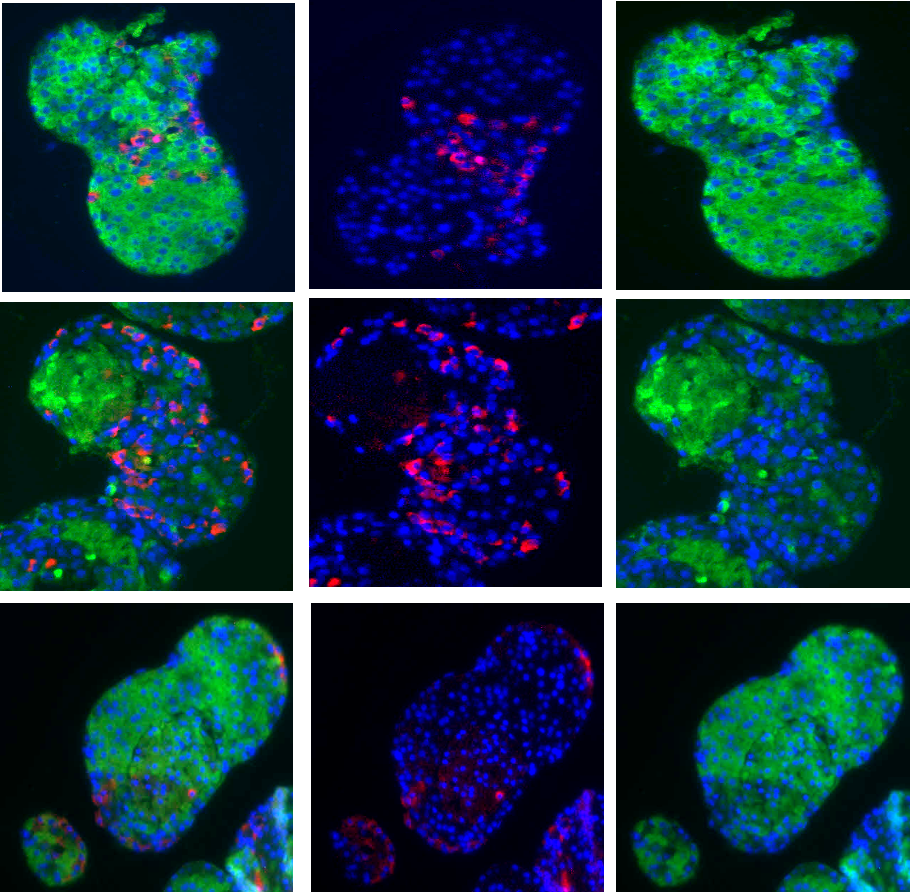
eNAMPT cells
The team are currently carrying out further preclinical proof of concept studies in diabetic, cardiovascular and psoriasis models to evidence the broad potential applications of our compounds. Patent applications are being prepared, as is the business plan to support spinout of this technology.
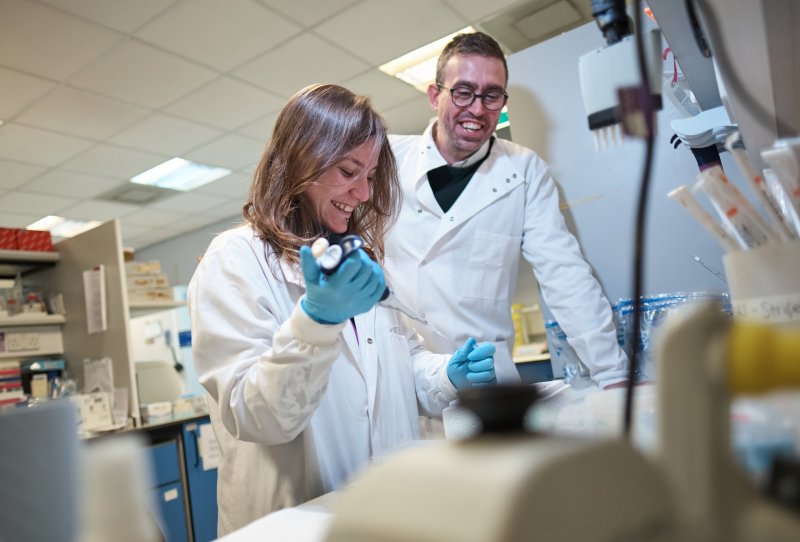
Dr Sam Butterworth and researcher, Blanca Risa
Please get in touch with Fay Kassibawi, to find out about investment opportunities with Apini.




